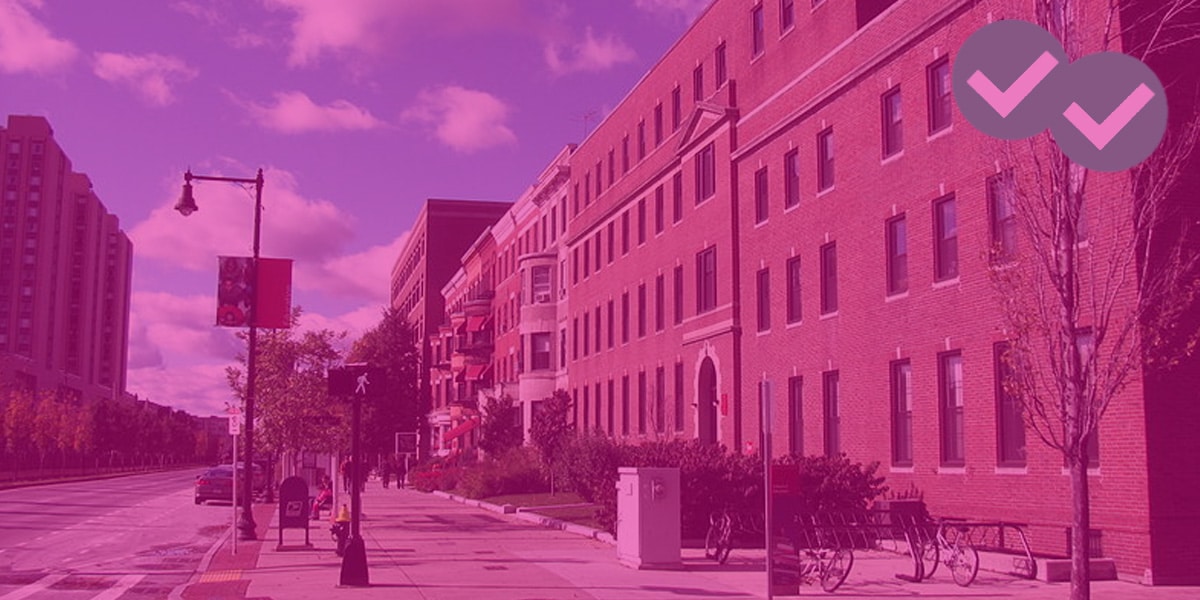
Today, we’ll look at all things Boston University admissions: Boston University SAT scores, Boston University ACT scores, Boston University GPA, and more!
First, let’s look at the basics. Below is a quick rundown of Boston University’s test scores, GPA expectations, acceptance rate, and national ranking. (All information below is taken either from US News and World Report or from the Boston University website.)
Boston University Admissions Statistics
(Sources for the stats: Boston University Admissions student profile, US News and World Report)
Boston University SAT Scores: What They Mean for Boston University Admissions
Note that Boston University posts the middle 50% score range for its most recently accepted students; it does not post SAT score requirements. While Boston University doesn’t have any minimum acceptable score for the SAT, it is still a highly competitive school. To maximize your chances of being accepted, it’s best to have an SAT score that is falls in or above BU’s mid-50% range of 1420-1540. Ideally, you’ll want a score that is near, at, or above 1530, so there’s no harm in aiming for the coveted perfect SAT score 😉
Boston University ACT Scores
As with the Boston University SAT scores, Boston University ACT scores have no minimum. Or at least, in theory, there’s no minimum. In reality, you’ll need a very competitive score. Note that 32, the lowest Boston University’s middle 50% of scores, is in the 97th percentile. So your surest bet at getting into Boston University is to be in the top 3% of ACT test takers.
If you’re not in the top 3%, don’t feel bad. By necessity, lots of people fall outside of the 98th percentile for ACT scores. With a lower ACT score, you still certainly have a chance of being admitted. An ACT score that’s below 32 but still in the high 20s or low thirties may still be acceptable. And even a lower ACT score is not absolutely forbidden. With that said, the lower your Boston University ACT scores are, the stronger the rest of your application should be.
Boston University GPA
What’s interesting about Boston University’s GPA is that it’s equivalent to an A- letter grade average. This is a surprisingly manageable standard, something any hard working student has a chance of pulling off. An A- is actually far easier to maintain than a near-perfect A or perfect A+, both of which are equivalent to a 4.0. (For more information, see Magoosh’s guide to calculating GPA).
But again, if you fall short of one of Boston University’s average standards, you still have a shot at acceptance. The lower your GPA, the better the rest of your application will need to be, but a GPA of 3.5 or 3.6 is by no means a deal-breaker.
Boston University Freshman Profile
So what does a typical Boston University freshman look like, and what are your odds of fitting the profile and getting in?
One thing immediately worth noting is Boston University admissions for freshman are especially competitive, given the 19% acceptance rate for first year students. In keeping with that competitiveness, Boston University freshmen are high academic achievers who stand out among their high school classmates. Successful first-year applicants are, on average, in the top 7% of their high school cohorts. (Source: Boston University Admissions: Academic Profile.)
Boston University freshmen are, above all, diverse. Boston University students come from 150 countries and from all 50 states within the U.S.A., and a full 17% of Boston University’s students are the first in their family to attend college (source: Boston University facts and rankings). So no matter where you’re from or what your personal background is, you’re likely to find other people from your home state, town, or country when you attend Boston U.
Boston University Admissions: Other Requirements and Info
So, beyond Boston University SAT scores, Boston University ACT scores, and Boston University GPA, what else do you need, when it comes to how to get into Boston University?
One thing you’ll need is two recommendations. One recommendation should come from your guidance counselor, and the other should come from a teacher. Both recommendations will be submitted through a form that you can send either through the Common Application website or the Coalition Application website– your choice. These are a third-party websites that processes applications for many different university admission offices, including Boston University admissions. and you can find the Common and Coalition links on this BU Admissions web page. If you’ve never had to get a letter of recommendation before, Magoosh has you covered! Check out our guide to getting a letter of recommendation for university admissions purposes.
Since Boston University uses the Common Application and Coalition Application sites, you’ll also need to write an essay suitable for the Coalition or Common App. Here, again, Magoosh can help. We have a tutorial on how to write a winning Common App essay that is also applicable to Coalition applications.
Here are some additional tips from jcante, from AdmitSee, for how to write your essay:
For additional details on Boston University admissions requirements, you can go to the official Boston University admissions undergraduate checklist.
How to Get Into Boston University: The Boston University Admissions FAQ
What is the Early Decision acceptance rate at Boston University?
Boston University’s Early Decision program allows students to apply earlier than the standard application timeline, so that they can receive a decision from BU well before other applicants do. The catch is that students accepted under Early Decision are contractually obligated to attend Boston University and not apply to other schools.
One benefit is that these early applicants tend to have a greater chance of getting accepted. Although Boston University doesn’t publish separate acceptance rate data for Early Decision students, schools that offer Early Decision tend to accept a higher number of students who take that option. There are actually two Early Decision periods offered by Boston University Admissions: the earliest “Early Decision 1,” and the slightly less early “Early Decision 2.” For more information on these two windows for early application to the school, see Boston University’s Early Decision web page, and the early decision timelines on the Boston University Admissions list of important deadlines.
Does Boston University require SAT Subject Tests?
For the most part, Boston University doesn’t require or even recommend subject tests. However, applicants to Boston University’s seven-year accelerated medical program (a combined pre-med and medical degree program) will need qualifying SAT Subject test scores for Chemistry and Math 2. Applicants to this program are also encouraged to submit an SAT Subject Test score for a foreign language.
At Boston University, do art majors need to submit a portfolio or perform an audition?
Yes! Applicants to Boston University’s College of Fine Arts will need to either submit a portfolio or undergo an audition, depending on their chosen major. In addition, CFA applicants actually do not need to submit SAT or ACT scores.
Is Boston University an Ivy League school?
In the colloquial sense of the term “Ivy League,” Boston university fits the definition. It is an elite, highly selective coastal school in the U.S. However, Boston University is not Ivy League officially. The eight schools formally listed as part of the Ivy League are: Brown, Columbia, Cornell, Dartmouth, Harvard, Princeton, University of Pennsylvania, and Yale.
How to Get Into Boston University: The Takeaway
Boston University is, to be sure, a highly competitive school. You’ll need to submit excellent ACT and SAT scores to Boston University, and have a top-notch GPA and class rank. And even if you’re an art major and don’t need to submit test scores, you’ll still need an impressive portfolio or audition performance.
With those high hurdles, of course, comes great reward. Boston University degrees command a level of respect comparable to degrees form the official Ivy League schools. And you’re bound to have a very enriching and diverse social experience there as well, interacting with the best and brightest from across the nation and around the world.





